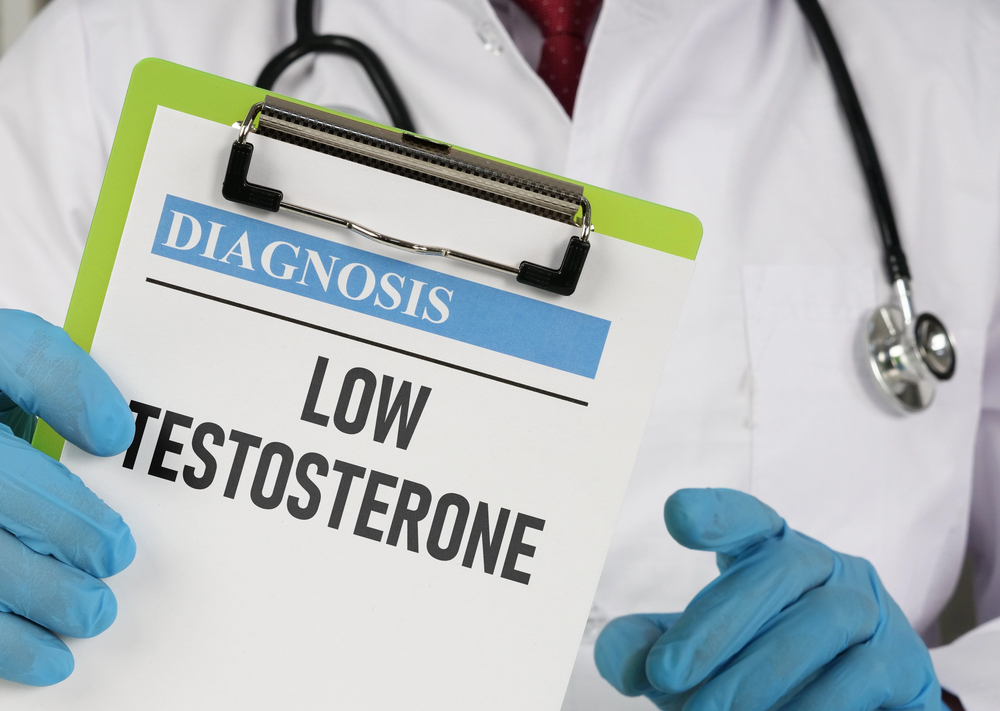Five Symptoms of Low Testosterone in Males
Typically, it’s more common for symptoms of low testosterone in males to manifest in men who have diabetes or are overweight. However, this condition can happen to any man. According to the Urology Care Foundation, approximately two out of every 100 men may experience testosterone deficiency (TD).
At Urology Associates of South Bend, we work to address the root cause of testosterone deficiency. The best way to know for sure if you’re experiencing low testosterone is to seek information about the symptoms. If you are experiencing any signs of TD, it’s important to make an appointment with a urologist. If one of our specialists does diagnose you with this condition, do not worry; you’ll be in the best, safest, and most experienced hands.
Familiarize Yourself With These Five Major Symptoms of Low Testosterone in Males
Testosterone hormones are essential to male sexual development and function. In addition to supporting facial hair growth, muscle strength, and voice changes, testosterone is vital to producing sperm. A urologist may test for low testosterone when a couple is having difficulty conceiving. Infertility issues, however, is only one possible indication that a man has low testosterone levels.
Check out five symptoms that may indicate low testosterone:
 Reduced sex drive
Reduced sex drive- Difficulty achieving an erection
- Minimal facial hair growth and/or loss of body hair
- Persistent fatigue with or without additional signs of depression
- Nominal ability to amass muscle (or diminishment of muscle mass)
It’s important to recognize that, although these symptoms can be symptomatic of low testosterone deficiency syndrome, they may also signify other health conditions. The best way to know exactly what is causing these changes is to visit your urologist.
How Does a Urologist Check Patients’ Testosterone Levels?
In addition to assessing the symptoms of low testosterone, urologists will go over a patient’s medical history, perform a physical examination, and conduct diagnostic testing. Diagnostic and blood tests can evaluate:
- Total Testosterone Level
- Luteinizing Hormone (LH)
- Blood Prolactin Level
- Blood Hemoglobin or Hgb
- HbA1C Blood
- Follicle Stimulating Hormone (FSH)
- Estradiol Hormone
Based on individual cases, a urologist may conduct an MRI, bone density test, and a karyotype (chromosome testing).
Many men are curious as to what causes low testosterone. There are a number of health conditions and reasons that can contribute to this condition:
- Obesity
- Age (it’s estimated that around 50% of men over 80 years old may have TD)
- Injury or trauma to the testicles
- Autoimmune diseases
- Genetic conditions, such as Klinefelter syndrome and Noonan syndrome
- Sexual developmental problems
- Removal of testicles because of cancer
- Chemotherapy or radiation
- Pituitary gland disease that has lead to a hormone deficiency
- Problems with blood pressure, cholesterol, etc.
How is Low Testosterone Treated?
If your urologist diagnoses low testosterone, testosterone therapy may be recommended. There are several ways that testosterone can be administered to patients:
- Topical Options
Gels, liquids, creams, and patches are available that adhere to the skin, much like an adhesive band-aid.
- Oral Patches
Rather than prescribed in pill form, testosterone is administered orally via a patch that’s placed above the canine tooth.
- Injections
Your urologist may recommend short- or long-acting testosterone injections that are given weekly, bi-weekly, or monthly.
- Intranasal Gels
Some forms of testosterone come as a gel that can be dosed into each nostril.
- Pellets
Pellet testosterone is placed under the skin of the upper hip or buttocks by your urologist. The medication is then slowly released over the span of three to six months.
While testosterone therapy is safe for many men, there may be certain patients with health conditions or who take medications that can increase negative health outcomes. Each individual case is different, which is why it’s important to consult with an expert. A professional urologist will be able to determine whether a patient is a suitable candidate for testosterone therapy.
At Urology Associates of South Bend, we make your safety, comfort, and privacy our top priorities. No matter what diagnosis you receive, our skilled and experienced urologists will be there to help you every step of the way.
If you’d like to know more about the symptoms of low testosterone in males or have been experiencing any of the previously mentioned issues, UASB is here to help. Schedule a consultation today or call us any time at (574) 234-4100.
Request an Appointment
Address:
6301 University Commons, Suite 350
South Bend, IN 46635
Phone:
(574) 234-4100
Fax:
(574) 282-1739
